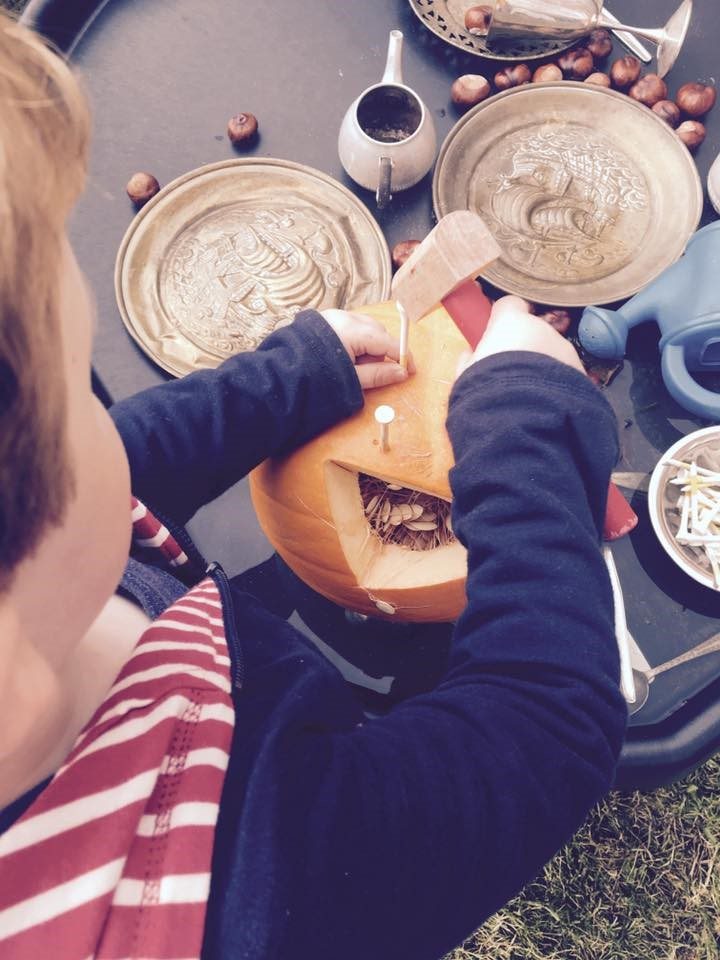We are seeing more and more children getting to school with underdeveloped fine and gross motor skills; a prime area of learning. This could be due to the increase of children of preschool age using iPads etc. at home. The ability to write is a complex one, not only do children need to have the confidence to pick up a pencil and make marks on paper, they also need to be developmentally ready to write with strong core and hand muscles. The hand is a really complex piece of machinery and is made up of lots of joints and muscle groups that interconnect and work together to provide maximum dexterity.
Simple activities like baking will help develop these skills.

Children’s arms and hands contain a series of pivotal joints which develop from biggest to smallest (shoulder, elbow, wrist, fingers). Once the pivots have worked their way down to the wrist, the journey doesn’t stop there, though for many children it becomes far trickier and they often face difficulties. The end of the pivot journey is when the mark making ends at the smallest set of pivots, right at the end of the fingers. If children can hold their mark making tool there, then they will have the fullest, most dextrous range of movement that their bodies can provide and be ready to write for life. This is fine motor control. However, it is important to remember that a child cannot master fine motor activities until gross motor skills are developed.
What can be done to improve gross and motor skills development?
Many schools have introduced funky finger and dough disco activities. The Early Years Staffroom have created a year’s worth of interesting activities and planning for funky fingers. These involve a series of hand, arm, elbow, wrist, shoulder and finger exercises. These work together to strengthen and develop children’s fine and gross motor dexterity, hand – eye co-ordination, proprioception, balance, low load control, grip and self-esteem.
Dough disco is a fun activity which combines the use of play dough with a series of hand and fingers exercises designed to improve fine muscle control. It begins with large movements which works mainly on the children’s shoulder, elbow and wrist joints and gross motor skills. The movement develop children’s fine and gross motor dexterity, hand-eye coordination and self-esteem by strengthening the children’s fine motor skills it enables them to develop their pencil grip which in turn will help develop their writing skills. See plans for dough disco here.

Funky Fingers is centred around fun fine motor activities which use the children fingers to develop the muscles needed for writing. These activities are geared at developing and strengthening the children’s shoulder, elbow, wrist, finger and thumb pivots including finger isolation, knuckle, PIP and DIP joints, palm arches, in hand manipulation as well as their pincer grip, bilateral coordination and hand eye/coordination.
Some of these sessions can also take place outdoors see our plans on this to help develop their gross motor skills strengthening their shoulders, elbows and wrists.
How can you differentiate these activities?
Differentiation can be brought in by challenge; the speed at which you ask the children to perform the activity or the number of times you ask them to complete the task in a given time. You can use isolation mats so the children can only use one hand at a time and then swap them over so they are using their less dominant hand, or keeping elbows tucked into their sides.
How do you assess fine motor development?
In order to plan for funky fingers you need to take into account a child’s grip with a variety of objects of different sizes and also their ability to use their own fingers or manipulate resources to pick up small objects. Then you can use this information to create activities that will challenge and extend the children in your cohort as they will all be different. As the children become proficient in their skills then you increase the dexterity challenge of the activities.
There are four stages to grip development which are used when assessing the children, each of which are linked to their pivotal stage, for example a child at grip stage one is still operating from the shoulder so will need activities which work on strengthening their elbow pivots. You can use the assessment posters to help remind you where the children are up to and where they are going next. Sticking post its to the display can be useful as you can move them along as the children progress.











